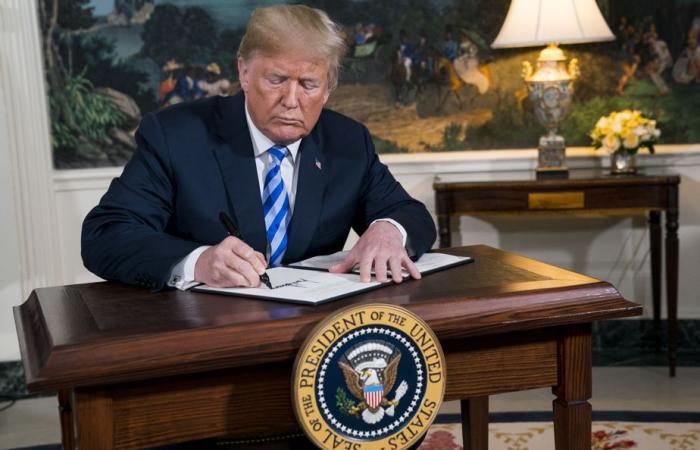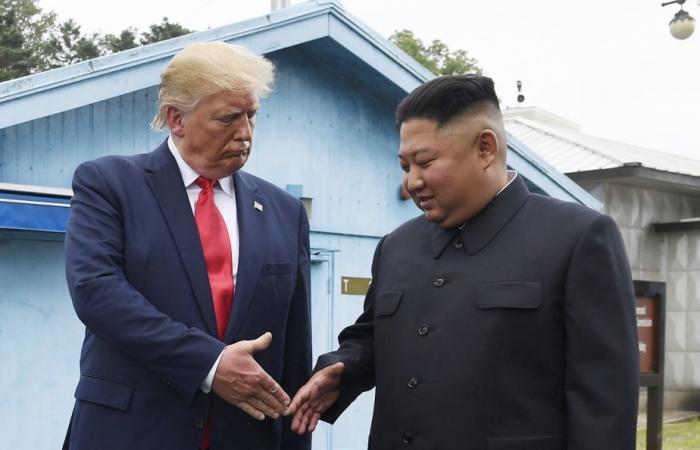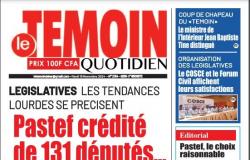The election of Donald Trump as head of the United States complicates the equation in the fight against nuclear proliferation.
Posted at 12:00 a.m.
What you need to know
- Donald Trump’s return to the presidency could lead different countries to examine their positions on the need for nuclear weapons;
- Iran is among them, as is South Korea, even though it is a country allied with the United States;
- The evolution of relations between the United States and Russia will also be closely followed by nuclear proliferation experts.
Several experts gathered Monday by the Chatham House think tank warned that the “unpredictability” of the new American head of state could lead different governments to carefully weigh their position on the need to acquire nuclear weapons.
Jamie Kwong, who is attached to the Carnegie Endowment for International Peace, clarified during the roundtable broadcast online that South Korea finds itself in this situation even though it is a traditional ally of the United States.
Donald Trump has repeatedly questioned the cost of military support provided to Seoul against North Korea, casting doubt on his determination to intervene in the event of open conflict with Pyongyang, which has the atomic bomb.
Public discussion about the opportunity for the South Korean state to in turn equip itself with this capacity has intensified considerably since the announcement of the result of the American elections, notes Mme Kwong, who does not expect the country to soon exit the Treaty on the Non-Proliferation of Nuclear Weapons (NPT).
The Iranian risk
Iran represents a potentially greater risk, since the regime has the knowledge and resources required to acquire nuclear weapons relatively quickly, notes the researcher.
“All that’s missing is a political decision,” says M.me Kwong, who expects Donald Trump’s return to the White House to weigh heavily on the future.
During his first term, he withdrew the United States from a multi-party agreement designed to guarantee the civilian nature of Iran’s nuclear program and began implementing a policy of “maximum pressure” that had exacerbated tensions.
The Iranian regime had responded in particular by enriching fissile material well beyond the threshold required for civilian purposes and could go even further if it concludes that its security is threatened.
The damage inflicted over the past year by Israel on related armed groups such as Hamas in Gaza and Hezbollah in Lebanon also promises to play a role in Tehran’s decision.
The United States and Russia at loggerheads
Many questions are also being asked about the impact that the return of Donald Trump will have on relations between the United States and Russia, which have been at loggerheads since the launch of the invasion of Ukraine in 2022.
Moscow has repeatedly threatened to use nuclear weapons to convince NATO and its member countries to limit their support for Kyiv.
“Making this threat a reality would lead to a cascade of dramatic consequences,” noted Patricia Lewis, of Chatham House, who is delighted to see that China did not hesitate to intervene to put pressure on its ally and encourage it to moderate his speech on the subject.
Rose Gottemoeller, who served as NATO deputy secretary from 2016 to 2019, told the roundtable that Donald Trump’s promised negotiations to end the war in Ukraine could lead to “a change in dynamic” with Moscow likely to relaunch discussions in the nuclear field at the same time.
Russia announced in February 2023 that it was suspending its participation in the NEW START treaty, without renouncing it, noting that it was impossible to allow the arrival of inspectors in the country while the United States seeks to impose a significant defeat.
The agreement in question provides that the two countries must limit the number of nuclear warheads deployed on launchers to 1,550.
Russia and the United States ended another agreement in 2019 limiting intermediate-range nuclear forces, fueling concerns.
PHOTO SUSAN WALSH, ARCHIVES ASSOCIATED PRESS
Donald Trump met with North Korean leader Kim Jong-un in the demilitarized zone that separates the two Koreas on June 30, 2019.
Mme Gottemoeller indicated that the American president-designate had displayed great ambitions on the nuclear issue during his first term, in particular by attempting a rapprochement with the North Korean leader, Kim Jong-un, and could want to do it again in his second term. “He would like to be recognized as a peacemaker,” she said.
Mme Kwong notes that there will be no progress with North Korea, which is now allied with Russia, if the United States continues to demand the abandonment of its nuclear arsenal as a condition sine qua non to any lasting appeasement.
“They will not come to the table if that is the priority,” warns the researcher, who considers it more realistic to work to “reduce the risks” of nuclear confrontation with Pyongyang.







